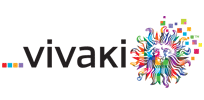Curt Hecht, President, VivaKi Nerve Centre, Responds To Recent TechCrunch Allegations
by Ciaran O'Kane on 30th Nov 2010 in News

How do you respond to recent accusations in TechCrunch that Vivaki is receiving considerable kickbacks as part of its global deal with Google? Are “kickbacks” part of this deal?
CH: No. VivaKi/Publicis Groupe has a strategic deal with Google because we both want to develop and expand the data-driven advertising marketplace. As part of this deal, Google invests in our technology and the people who operate the technology. Essentially, we are “white-labeling” Google technology to operate AOD (as we should, it is the best in the marketplace right now). As we stated when we first announced the renewed deal, we are also hoping to build out the trading desk to incorporate video and mobile ads. These are emerging marketplaces in which our clients will want to lead.
Is Vivaki, as the TechCrunch post suggests, too dependent on Google technology? Is it healthy for a business to be so reliant on one company’s tech infrastructure?
CH: This feels like the old “frenemy” fear of disintermediation that prevents many of our competitors from embracing open partnerships (which we believe forces them to move more slowly than we are able to).
Google is a technology company. By focusing on AdX, they are empowering the agencies to serve clients more effectively and efficiently. This doesn’t feel like an effort to get rid of us.
Our agency teams work in service to their clients. They know the client business and objectives. They know the consumer. They are experts at interpreting data and mapping the most impactful approach to delivering messages. This is not where Google wants to operate. And this is why the partnership is particularly powerful. Technology plus insight plus accountability adds up to huge client benefit.
Do you think this deal with Google will inhibit Vivaki’s ability to deliver for clients - if, as the blog post suggested, the majority of the ad spend is being funnelled through the Google exchange infrastructure, ie Adx, Invite and GDN? How are advertiser partners going to benefit from this deal?
CH: The agreement won't inhibit as we won't be funneling any monies anywhere. All clients have visibility down to the site of what is preforming and what's not so there is no where to hide.
It’s not possible to favor any media through AOD. This is a bidded marketplace. And a performance-driven marketplace. Campaigns have to deliver against client KPIs or the spend is not justified. It’s all transparent and tracked.
Furthermore, Audience on Demand must beat the ad networks and direct sales channels if clients are going to spend on it.
And to put a punctuation mark on it, our clients and their teams do not allow for bias. Clients spend money on Google because Google performs. No performance, no investment. It’s pretty simple. We would not be in business very long if we operated any other way.
We have a strong balance across the major exchanges (Yahoo, Microsoft) as well as alternative markets such as Improve Digital, Rubicon Project, and Admeld.
The TechCrunch post also alluded that the bulk of the ad spend going through the Invite platform is being pocketed by Google. Can you confirm that Vivaki is also buying impressions across other non-Google inventory sources?
CH: AOD buys on Google AdX, but Google AdX receives no preference in this performance-driven marketplace (less than 20% of current AOD activity is via AdX).
We have been the first to create exclusive and private inventory blocks with Microsoft, Yahoo! and now the premium publishers as well.
Again, we manage dollars to client outcomes. If we don’t, we won't be operating very long in this marketplace.
How does this deal compare with similar partnerships with other media owners?
CH: We have a number of partnerships and agreements with a variety of media owners, large and small. The VivaKi Nerve Center was created specifically to work with the media and technology companies to deliver tools and platforms our clients will need to connect with people in an evolving media landscape. This was an aggressive move by Publicis Groupe, and it has put us in a unique strategy to create new models that marketers need.
We believe in open partnership because working with these companies accelerates our ability to build platforms, tools, technology and capabilities that clients need to connect with people in an increasingly digital world. Our agreements allow us to deliver unique benefit to our clients. Microsoft, for example, is a long-term investor in The Pool. Yahoo also invested in Lane 1 of The Pool, which has helped us identify and scale a new ad model for online video. The Pool is a partnership of many companies. Media owners participating in the Pool also include YouTube,CBS Interactive, Hulu, FoxNews, Warner Brothers, plus many others. In global markets, this list expands to more than 60 participants.
We have first-look and first-mover opportunities with most, if not all, of our partners.








Follow ExchangeWire